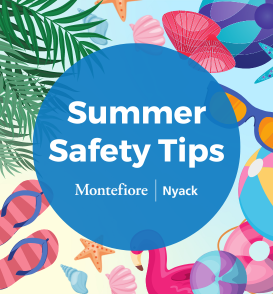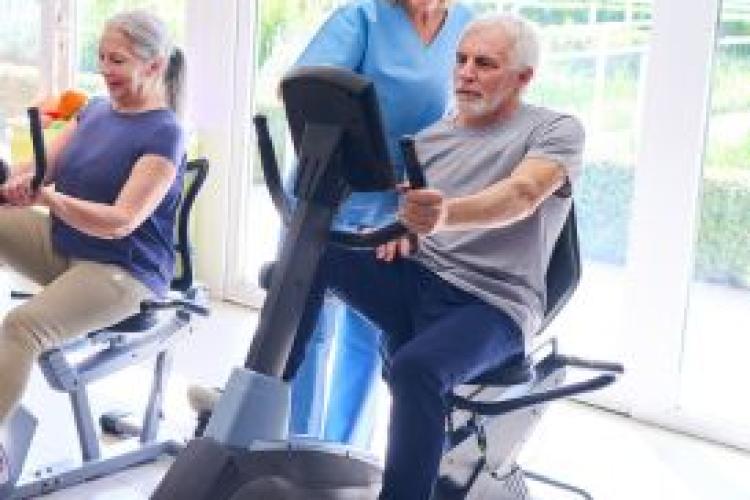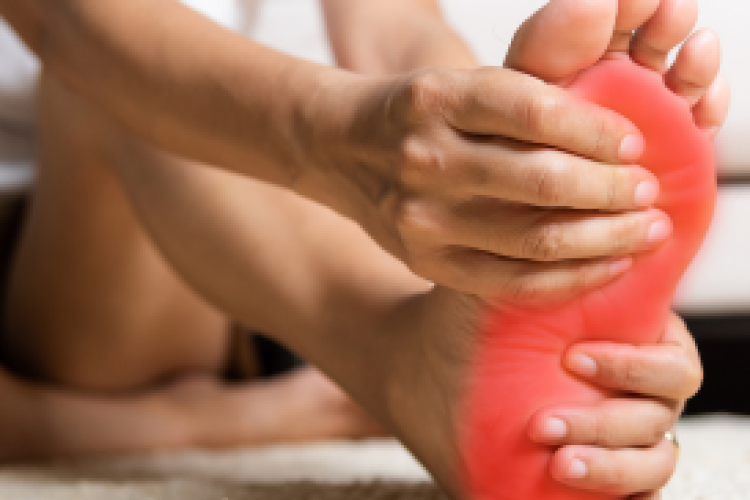
As you enjoy being outdoors this summer, take some simple steps to prevent common health problems and potential dangers posed by the warm weather and many popular summer pastimes. Ensure your family will have a safe and fun summer by being vigilant and limiting distractions. The best safety measures prevent accidents before they happen, like teaching your child to swim and using Coast Guard-approved life vests.
Other safety tips to keep in mind are:
E-Bikes and Micro-mobility Devices
E-bikes and e-scooters, also known as micro-mobility devices, have grown in popularity as an economical and efficient new way to get around. However, the lithium-ion batteries inside them can ignite, with little or no warning, leaving seconds for people to escape.
Also, arm fractures and dislocations (hand, wrist, elbow, shoulder) can happen even when the impact is at low speeds. Head, neck, and face injuries, including lacerations and abrasions, can occur that may leave significant scarring. Abdominal injuries may result in internal bleeding and the need for immediate surgical procedures.
Follow these safety recommendations from the Consumer Product Safety Commission (CPSC) and the FDNY:
• Only use the charger that came included with your device and follow the manufacturer’s instructions for proper charging.
• Be present while you’re charging your device. Don’t charge it while you're sleeping.
• Unplug the device once it is fully charged.
• Charge away from flammable materials like furniture and pillows.
• Never charge or store your device in a location that blocks access to an exit.
• Look for batteries that have a UL certification and are made by a reputable manufacturer.
• If your battery starts to fail, it may be safest to buy a new one from the same company that produced your bike or scooter.
• To dispose of an old battery, bring it to a battery recycling center or another e-waste facility. Don't throw away lithium-ion batteries in conventional trash.
Fireworks
Children should never play with fireworks, including firecrackers, rockets, and sparklers. If you give kids sparklers, make sure they keep them outside and away from the face, clothing, and hair. Sparklers can reach 1,800°F — hot enough to melt gold.
Grilling Safety
Use these common-sense tips for barbequing from the National Fire Protection Association:
• Propane and charcoal BBQ grills should only be used outdoors.
• The grill should be placed well away from the home, deck railings, and out from under eaves and overhanging branches.
• Keep children and pets at least three feet away from the grill area.
• Keep your grill clean by removing grease or fat buildup from the grills and in trays below the grill.
• Never leave your grill unattended.
• Always make sure your gas grill lid is open before lighting it.
Heat Illness
When temperatures are high, the body may not be able to properly cool itself. Heat-related illness is most dangerous for older adults, very young children, and people with chronic diseases.
• When it’s hot outside, don’t wait until you’re thirsty to drink. Drink plenty of fluids to stay hydrated. Avoid very sugary or alcoholic drinks in the heat – they can cause you to lose more fluid.
• Wear loose, lightweight clothing and a hat; and avoid the outdoors during the hottest part of the day, from 11 a.m. to 3 p.m.
• Signs of heat-related illness include feeling dizzy, urinating less than normal, dry mouth, heart palpitations and muscle cramps. If you feel any of these signs, go back indoors where it’s cool. A cold shower or bath can help cool you down.
• If you are caring for someone with a heat-related illness, seek immediate medical attention if symptoms don’t improve or if the person still has a fever of 102 after 30 minutes of treatment; the person goes into shock, faints or has seizures; or stops breathing.
Leg Swelling
Leg swelling, or edema, is caused by the retention of fluid in leg tissues and can become much worse in the hot summer months. People at risk include the elderly and those with severe chronic lung diseases or congestive heart failure. Pregnant women may also experience leg swelling.
• To avoid leg swelling, don’t stand or sit for long periods.
• When you do sit down, try and elevate your legs to allow gravity to pull fluid away from your lower extremities.
• Soaking your legs in Epsom salts can also help.
• If the legs continue to swell, see your doctor.
Lyme Disease
The best ways to prevent Lyme disease are to avoid direct contact with ticks and to use bug repellent containing at least 20% DEET.
• Avoid areas with thick shrubbery and high grass, where ticks reside.
• When hiking, walk in the center of the trails.
• When you return home from a tick-infested area, conduct a full-body check using a hand-held or full-length mirror.
• Check under the arms, in and around the ears, inside the belly button, behind the knees, between the legs, around the waist, and in the hair where ticks love to burrow themselves.
If you find a tick:
1. Use tweezers with a good grasping end to remove the tick as close to the skin as possible. Wear gloves or use a tissue to protect your hands from the tick.
2. Grabbing the tick near the skin, pull upward with a slow, steady motion. Avoid sudden jerking or twisting motions.
3. Thoroughly disinfect the site of the tick bite, and wash your hands thoroughly.
4. Dispose of the tick by submerging it in alcohol, placing it in a sealed bag or container, wrapping it tightly in tape, or flushing it down the toilet. Don’t crush a tick with your fingers.
5. If the bitten person shows signs of having the flu or a rash in the area around the bite, contact your healthcare provider.
Severe Weather
• When you hear thunder, go indoors or seek shelter.
• Immediately get off elevated areas such as hills, mountain ridges or peaks.
• Never lie flat on the ground.
• Never shelter under an isolated tree.
• Never use a cliff or rocky overhang for shelter.
• Immediately get out of and away from ponds, lakes and other bodies of water.
Sunburn
Too much sun can damage the skin and increase the risk of skin cancer. To protect your skin from the sun:
• Stay in the shade as much as possible, especially during midday hours.
• Wear a hat with a wide brim to shade your face, head, ears and neck, and wraparound sunglasses.
• Use sunscreen with a sun protection factor (SPF) of 15 or higher, which offers protection from both UVA and UVB rays.
• Apply at least one ounce of sunscreen (about the amount you can hold in your palm) at least 20 minutes before sun exposure.
• Reapply at least every two hours and each time you get out of the water or perspire heavily.
Water Safety
Drownings are the leading cause of injury death for young children ages 1 to 4, and three children die every day as a result of drowning, according to the Centers for Disease Control and Prevention. The best way to prevent drowning is by providing constant supervision by an adult who can swim. Teach your children basic water safety tips, including how to swim, and have them wear a life jacket when they are on a boat.
• Don’t let children out of your sight at beaches, pools, and lakes.
• If a child is missing, look for him or her in the pool or spa first.
• Lifeguards aren’t babysitters. Make sure there is a designated parent or responsible adult who can swim to watch your child at all times.
• Understand the basics of lifesaving and CPR for both children and adults, so that you can assist in a pool emergency.
At the Beach
Rip currents are powerful, narrow channels of fast-moving water that are prevalent along the East Coast. Moving at speeds of up to eight feet per second, rip currents can move faster than an Olympic swimmer. Lifeguards rescue tens of thousands of people from rip currents in the U.S. every year. It is estimated that 100 people are killed by rip currents annually.
Tips to follow before venturing into the ocean:
• Know how to swim.
• If caught in a rip current, don’t swim against the current. Swim parallel to the shore and swim back to land at an angle.
• Swim near a lifeguard.
• Never swim alone.
• If in doubt, don’t go out.
At the Pool
• Don’t run alongside the pool,
• Remind your children to stay away from pool drains, pipes, and other openings to avoid entrapments.
• Install proper barriers, covers, and alarms on and around your pool and spa.
• Have a portable telephone close by at all times when using a pool or spa.
Taking precautions and a few extra minutes to prepare will help ensure your safety and that of your family. Be safe and enjoy the summer.



 Upcoming Events
Upcoming Events



